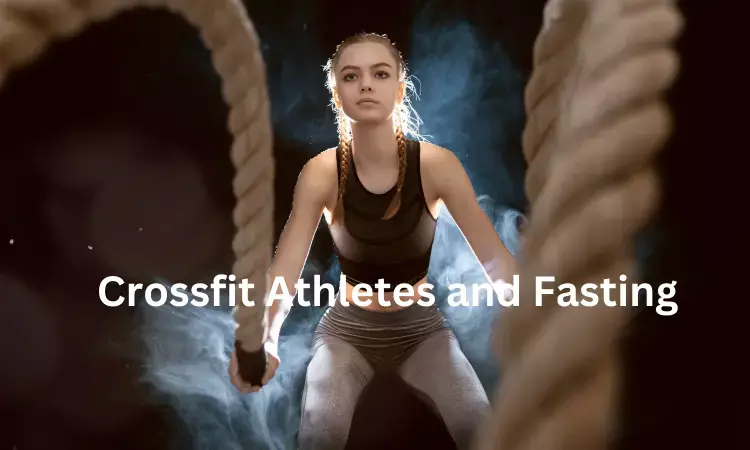- Home
- Medical news & Guidelines
- Anesthesiology
- Cardiology and CTVS
- Critical Care
- Dentistry
- Dermatology
- Diabetes and Endocrinology
- ENT
- Gastroenterology
- Medicine
- Nephrology
- Neurology
- Obstretics-Gynaecology
- Oncology
- Ophthalmology
- Orthopaedics
- Pediatrics-Neonatology
- Psychiatry
- Pulmonology
- Radiology
- Surgery
- Urology
- Laboratory Medicine
- Diet
- Nursing
- Paramedical
- Physiotherapy
- Health news
- Fact Check
- Bone Health Fact Check
- Brain Health Fact Check
- Cancer Related Fact Check
- Child Care Fact Check
- Dental and oral health fact check
- Diabetes and metabolic health fact check
- Diet and Nutrition Fact Check
- Eye and ENT Care Fact Check
- Fitness fact check
- Gut health fact check
- Heart health fact check
- Kidney health fact check
- Medical education fact check
- Men's health fact check
- Respiratory fact check
- Skin and hair care fact check
- Vaccine and Immunization fact check
- Women's health fact check
- AYUSH
- State News
- Andaman and Nicobar Islands
- Andhra Pradesh
- Arunachal Pradesh
- Assam
- Bihar
- Chandigarh
- Chattisgarh
- Dadra and Nagar Haveli
- Daman and Diu
- Delhi
- Goa
- Gujarat
- Haryana
- Himachal Pradesh
- Jammu & Kashmir
- Jharkhand
- Karnataka
- Kerala
- Ladakh
- Lakshadweep
- Madhya Pradesh
- Maharashtra
- Manipur
- Meghalaya
- Mizoram
- Nagaland
- Odisha
- Puducherry
- Punjab
- Rajasthan
- Sikkim
- Tamil Nadu
- Telangana
- Tripura
- Uttar Pradesh
- Uttrakhand
- West Bengal
- Medical Education
- Industry
24 hours fasting does not impair exercise performance or physiological parameters in CrossFit athletes

Fasting protocols are well known for various health benefits such as increasing metabolic flexibility, improving insulin sensitivity, promoting weight loss, and even slowing down the aging process. In the recent times studies have tested intermittent fasting (IF) in athletes, but its effects on female CrossFit athletes remain relatively unexplored in the existing literature.
A new study in Nutrients journal aimed to evaluate and compare the effects of 24-h IF on the physical performance of female CrossFit practitioners. The study found that 24-h fasting can lead to lower resting blood lactate concentrations, increased post-exercise lactate levels, and higher subjective hunger levels. However, fasting did not significantly affect ratings of perceived exertion, post-exercise blood glucose concentration, handgrip strength, jumping performance, performance times, heart rate parameters, or hydration levels.
Researchers included Eleven female CrossFit athletes (age: 30.91 ± 3.42, weight: 65.26 ± 7.55 kg, height: 1.66 ± 0.05 m) participated in the study. The study used a crossover design with fasting and eating conditions.
The key findings of the study
• Participants completed an exercise test, standing long jump, and handgrip strength assessment. Hydration status, heart rate, blood lactate, blood glucose, rates of perceived exertion, and hunger were measured.
• Results showed significant differences in blood lactate concentration (F = 5.435, p = 0.042, η2p = 0.352). Resting blood lactate concentration was significantly lower in the fasting trial than in the eating trial (p < 0.001), but post-exercise blood lactate concentrations were higher in the fasting trial than in the eating trial (p < 0.001).
• No differences were found in performance times (p > 0.05). In conclusion, this pilot study of females suggests that 24-h fasting does not impair exercise performance or negatively affect physiological parameters in CrossFit athletes.
Researchers concluded that “This pilot study of females suggests that 24-h fasting does not impair exercise performance or negatively affect physiological parameters in CrossFit athletes.”
Reference: Eroglu MN, Rodríguez-Longobardo C, Ramírez-Adrados A, Colina-Coca C, Burgos-Postigo S, López-Torres O, Fernández-Elías VE. The Effects of 24-h Fasting on Exercise Performance and Metabolic Parameters in a Pilot Study of Female CrossFit Athletes. Nutrients. 2023 Nov 20;15(22):4841. doi: 10.3390/nu15224841.
MSc. Neuroscience
Niveditha Subramani a MSc. Neuroscience (Faculty of Medicine) graduate from University of Madras, Chennai. Ambitious in Neuro research having worked in motor diseases and neuron apoptosis is interested in more of new upcoming research and their advancement in field of medicine. She has an engrossed skill towards writing and her roles at Medical dialogue include Sr. Content writer. Her news covers new discoveries and updates in field of medicine. She can be reached at editorial@medicaldialogues.in
Dr Kamal Kant Kohli-MBBS, DTCD- a chest specialist with more than 30 years of practice and a flair for writing clinical articles, Dr Kamal Kant Kohli joined Medical Dialogues as a Chief Editor of Medical News. Besides writing articles, as an editor, he proofreads and verifies all the medical content published on Medical Dialogues including those coming from journals, studies,medical conferences,guidelines etc. Email: drkohli@medicaldialogues.in. Contact no. 011-43720751


